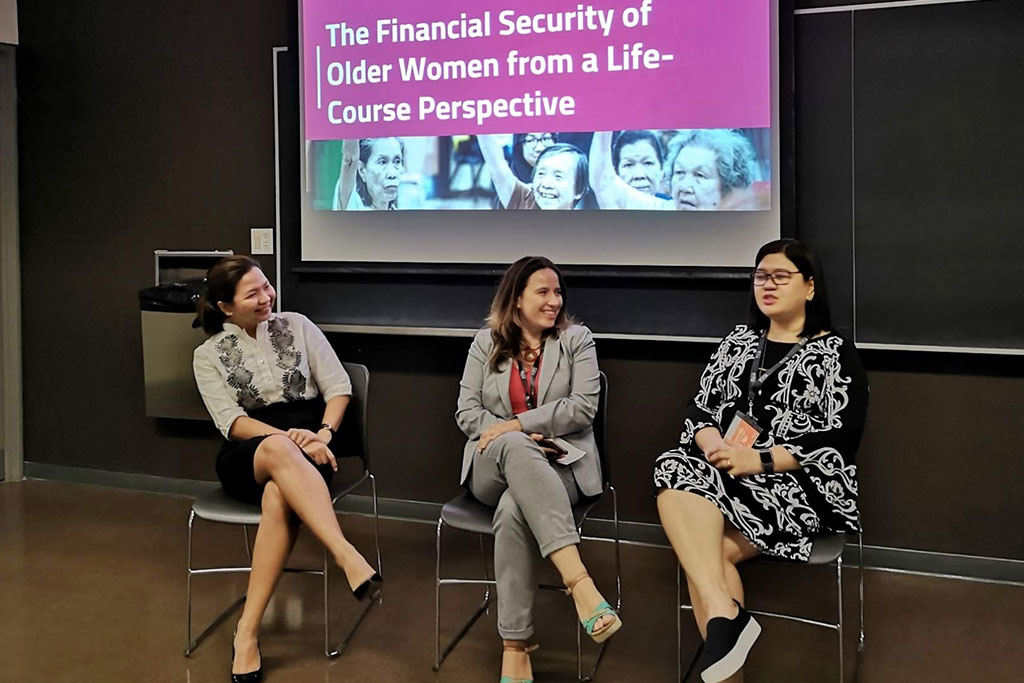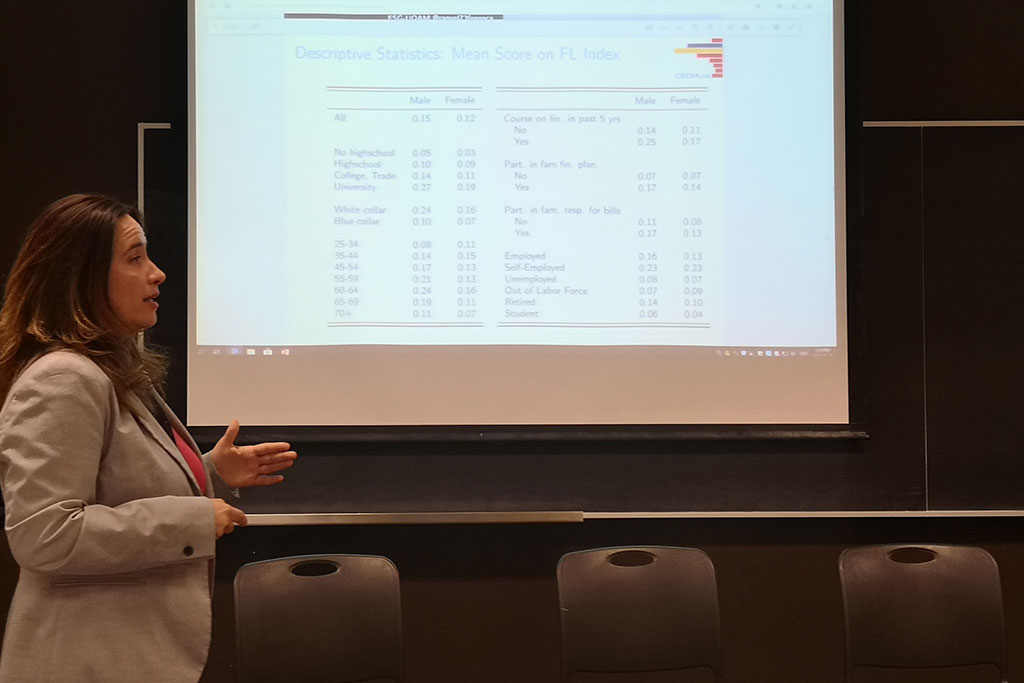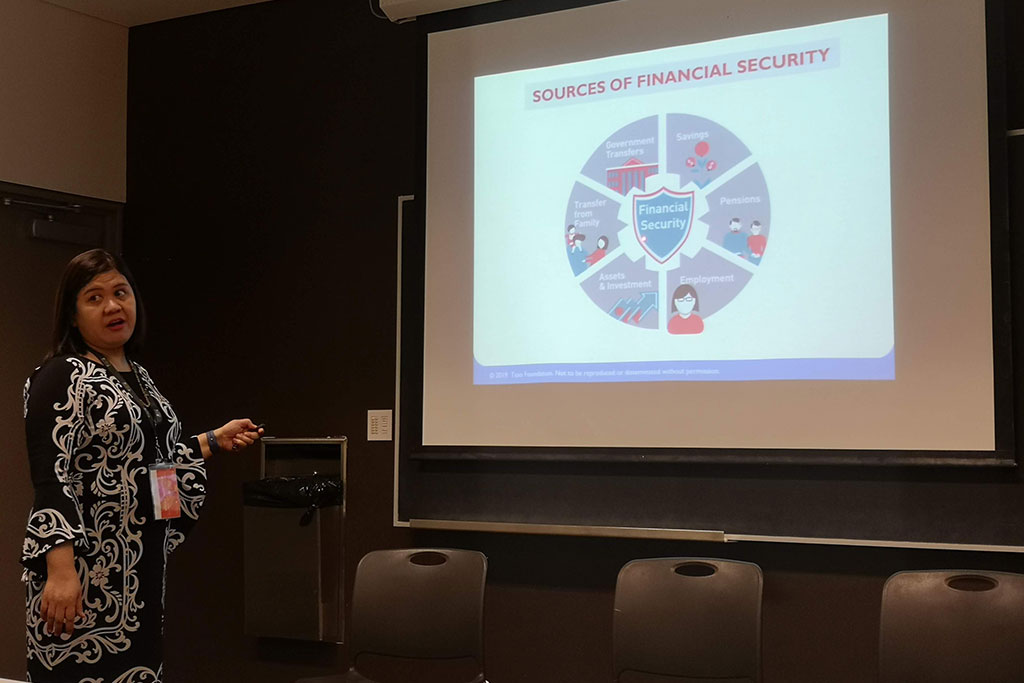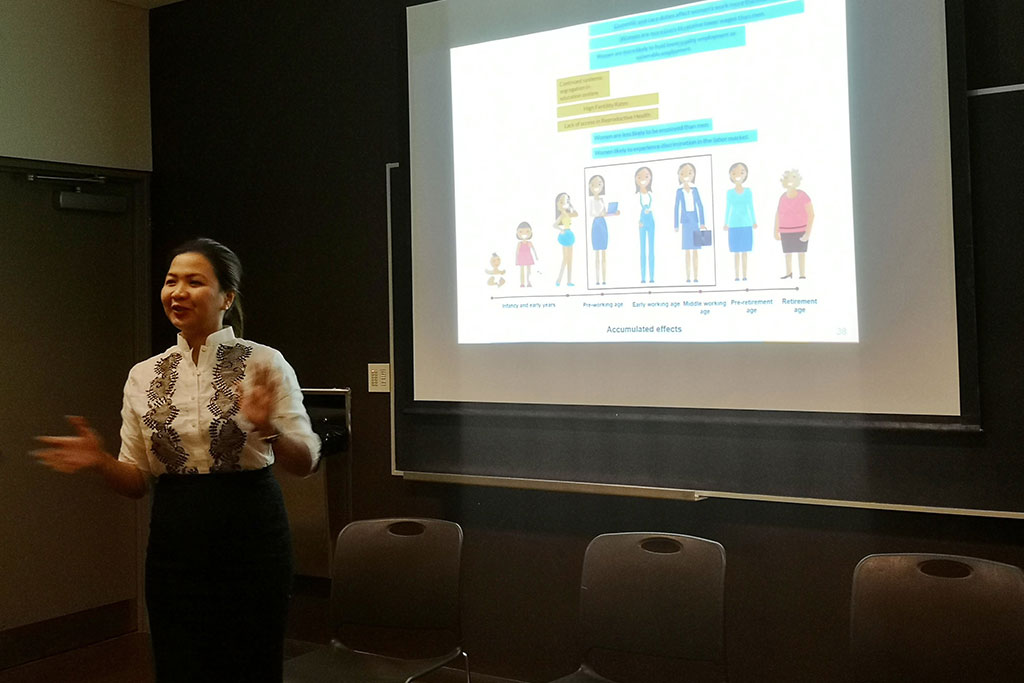International Conference on Public Policy, Montreal
The regional paper on Financial Security of Older Women in a Life-Course Perspective was featured in a panel session of the 4th International Conference on Public Policy (ICPP4) held June 26-28, 2019 at University of Concordia, Montreal, Canada.

The regional paper on Financial Security of Older Women in a Life-Course Perspective was featured in a panel session of the 4th International Conference on Public Policy (ICPP4) held June 26-28, 2019 at University of Concordia, Montreal, Canada. Organized biennially by the International Public Policy Association (IPPA), the conference gathered more than 1300 public policy researchers from around the world.
Under the topic "Gender, Diversity, and Public Policy", the panel aimed to focus attention on the factors influencing the financial security of older women in Asia, compare women’s experiences of financial insecurity in Asia with other regions, and underline the need for policies that integrate a life-course approach.

In the opening remarks, Susana Harding, the Senior Director of the International Longevity Centre Singapore of Tsao Foundation and also the panel’s chairperson, introduced the objective of joining this year’s conference, "We want to engage policy experts and researchers and use the platform to argue that policies should be gender and age-sensitive if we want to ensure that NO ONE will be left behind and researchers and policy people yourselves will hopefully become more aware of the impact of producing evidence and analyzing policies from the gender and aging lens."
Designed with interactive real-time voting of the audience, three paper presentations, and a panel interview, Ms. Harding also welcomed the participants to “a panel organized slightly different from the other panels” in ICPP4.

The paper presentations kicked off with the sharing of an overview of the financial security of older women in six countries in Southeast Asia – Indonesia, Malaysia, Myanmar, Philippines, Singapore and Thailand presented by Ms. Susana Harding. She highlighted the need to rework the current policy frameworks to recognize the women's specific requirements throughout the life-course and the corresponding policy recommendations that would address the gendered aspects of aging, both at the country level and the regional level.
In particular, the case of the Financial Security of Older Women in the Philippines was also presented in the panel. Aura Sevilla, an aging policy specialist and author of the Philippines report, highlighted the key factors related to women’s financial security in the Philippines which include gender gaps in human capital and economic opportunities. She also shared policy recommendations which include looking at the strategic interventions required at different stages of women’s lives in order to ensure women’s financial security in old age.

Lastly, the panel also featured a study in Canada, the conference host country of ICPP4, on the gender impact of financial literacy conducted and presented by Raquel Fonseca. Fonseca is an Associate professor at Université du Québec à Montréal (ESG-UQAM), an affiliated adjunct economist at RAND Corporation and a fellow at the Center for Interuniversity Research and Analysis of Organizations (CIRANO). In the paper titled, “Understanding the gender gap in financial literacy: the role of confidence in financial matters”, she highlighted why women are at higher risk of having financial problems in or near retirement and how the knowledge on different levels of financial literacy of men and women will guide the policy-makers in correcting the situation.
In conclusion, when analyzing financial security, intersectionality of gender and aging greatly matters in identifying which groups are more vulnerable to financial insecurity, and in designing policy interventions that will leave no one furthest behind. Moving forward, the panelists called for mainstreaming of gender and aging in the public policies considering that half of the world’s population is women, and most of the countries' population are aging.